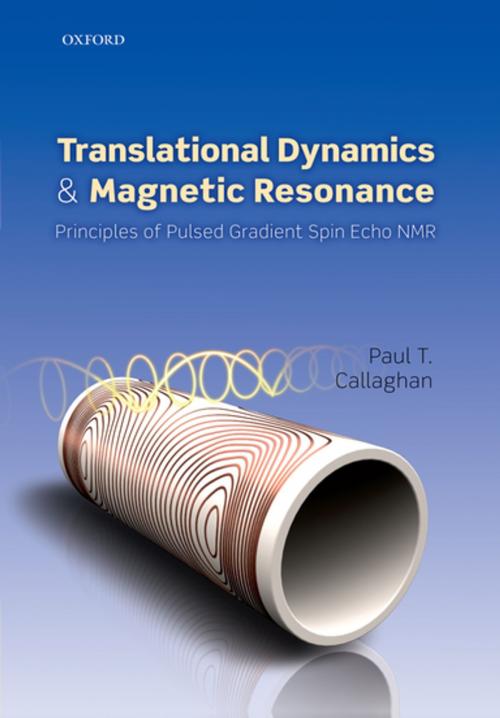Translational Dynamics and Magnetic Resonance
Principles of Pulsed Gradient Spin Echo NMR
Nonfiction, Science & Nature, Science, Physics, Solid State Physics, Technology| Author: | Paul T. Callaghan | ISBN: | 9780191621048 |
| Publisher: | OUP Oxford | Publication: | September 15, 2011 |
| Imprint: | OUP Oxford | Language: | English |
| Author: | Paul T. Callaghan |
| ISBN: | 9780191621048 |
| Publisher: | OUP Oxford |
| Publication: | September 15, 2011 |
| Imprint: | OUP Oxford |
| Language: | English |
Taking the reader through the underlying principles of molecular translational dynamics, this book outlines the ways in which magnetic resonance, through the use of magnetic field gradients, can reveal those dynamics. The measurement of diffusion and flow, over different length and time scales, provides unique insight regarding fluid interactions with porous materials, as well as molecular organisation in soft matter and complex fluids. The book covers both time and frequency domain methodologies, as well as advances in scattering and diffraction methods, multidimensional exchange and correlation experiments and orientational correlation methods ideal for studying anisotropic environments. At the heart of these new methods resides the ubiquitous spin echo, a phenomenon whose discovery underpins nearly every major development in magnetic resonance methodology. Measuring molecular translational motion does not require high spectral resolution and so finds application in new NMR technologies concerned with 'outside the laboratory' applications, in geophysics and petroleum physics, in horticulture, in food technology, in security screening, and in environmental monitoring.
Taking the reader through the underlying principles of molecular translational dynamics, this book outlines the ways in which magnetic resonance, through the use of magnetic field gradients, can reveal those dynamics. The measurement of diffusion and flow, over different length and time scales, provides unique insight regarding fluid interactions with porous materials, as well as molecular organisation in soft matter and complex fluids. The book covers both time and frequency domain methodologies, as well as advances in scattering and diffraction methods, multidimensional exchange and correlation experiments and orientational correlation methods ideal for studying anisotropic environments. At the heart of these new methods resides the ubiquitous spin echo, a phenomenon whose discovery underpins nearly every major development in magnetic resonance methodology. Measuring molecular translational motion does not require high spectral resolution and so finds application in new NMR technologies concerned with 'outside the laboratory' applications, in geophysics and petroleum physics, in horticulture, in food technology, in security screening, and in environmental monitoring.















